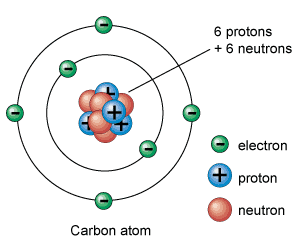Dr. Oliver Sacks
Touchstone, 1998
This is one of those books I started, literally, over a year ago, and only recently remembered that I needed to read it. Perhaps that's a neurological disorder...
It's not because I didn't care for the writing or the content of the book. It's fascinating. I was recently discussing the notion of the mind/brain connection with someone on the internet. He suggested that the mind and the brain aren't the same thing. I said that they are, and pointed to this book as evidence. Neurological damage is directly linked to changes in personality, ability, temperment, decision-making, and everything else that constitutes a "mind." When we physically alter the brain, the identity of the individual changes as well.
There's no reason to think that there is anything else going on inside our skulls than electric meat.
The person with whom I was discussing this assumed that I was strictly a materialist, and that I must believe that my point of view suggests that there is no such thing as free will, because if all our brains are is electric meat, then they'll have to follow the immutable laws of physics (through chemistry).
I said no, that we are capable of decision making (which is all "free will" is), which takes place at higher macro-structures in the brain, and that there is no need to suppose that anything else is taking place.
I set off to do some research on the topic (and as a result, finished this book). It turns out that decision-making skills is something which is not currently fully understood by the neurological community. I imagine that Harris has more to say about this in The Moral Landscape, which I intend to read soon enough.
I presented this current lack of understanding in the discussion.
"Ah-ha! So science can't explain it!"
"Correct. Not yet. But that doesn't automatically point to anything."
There was a time when we didn't know anything about anything. Neurology has come a long way in the last 50 years, so just imagine what the next 50 will hold.
That aside, Dr. Sacks wrote and edited this book in a phenomenal fashion. Towards the end, he seems to get a little mystical dreamy, but that's understandable given the subject matter of the last few chapters (autistic savants). This book seems to be a collection of essays he has had published in medical journals, with postscripts attached to give the current reader some followup.
One thing which should've been at the beginning of the book, but for some reason found its way to the back, is a sort of leveling-chapter for non-neurologists. Sacks, when he was writing his articles, was writing them for a specific crowd, versed in the terminology of his profession. While I wouldn't expect him to Bowlderize or dumb-down his articles for general consumption, it would be nice if he took the very tail end of the book (a description of general terms and neurological philosophies) and made it a foreword.
This isn't a major issue; the gods of the interweb can easily answer any terminological questions a person might have, and kindle 1 has a pretty good dictionary. But it still would've been nice.
The human brain is a fascinating thing. We know so little about it, but it's so important to us. Part of the problem is that it's so complex. I think the other fence which stands between us and a full understanding of the brain is the implication that there isn't some kind of built-in mystery-- that it's all understandable, even the most complex mesh of electric meat. When we get to that point, we will have few, if any, personal mysteries left.
Without personal mystery, we eliminate the need for a personal magician. Some people think that fully understanding the brain as a physical entity it would also cheapen things like love and art and wonder. They feel that if we reduced everything we perceive as wonderful to electrochemical reaction, then we would cease to see those things as wonderful.
I say nonsense. I'm of the opinion that we are physical entities, and I'm just as much in love with the world and with life as anyone else. I sincerely doubt that if everyone in the world came to the position that our brains are electric meat and that's all there is to it that it would change the way people behave.
 |
| Using these in a positive and beneficial manner is the meaning of life. |
Instead of cheapening life to see things from a material point of view, it seems to me to make it more important because it forces us to realize that we're temporary and that yesterday is gone. If we could get to that point, maybe our priorities would change a little.
Anyway. The brain. It's a crazy place.

No comments:
Post a Comment